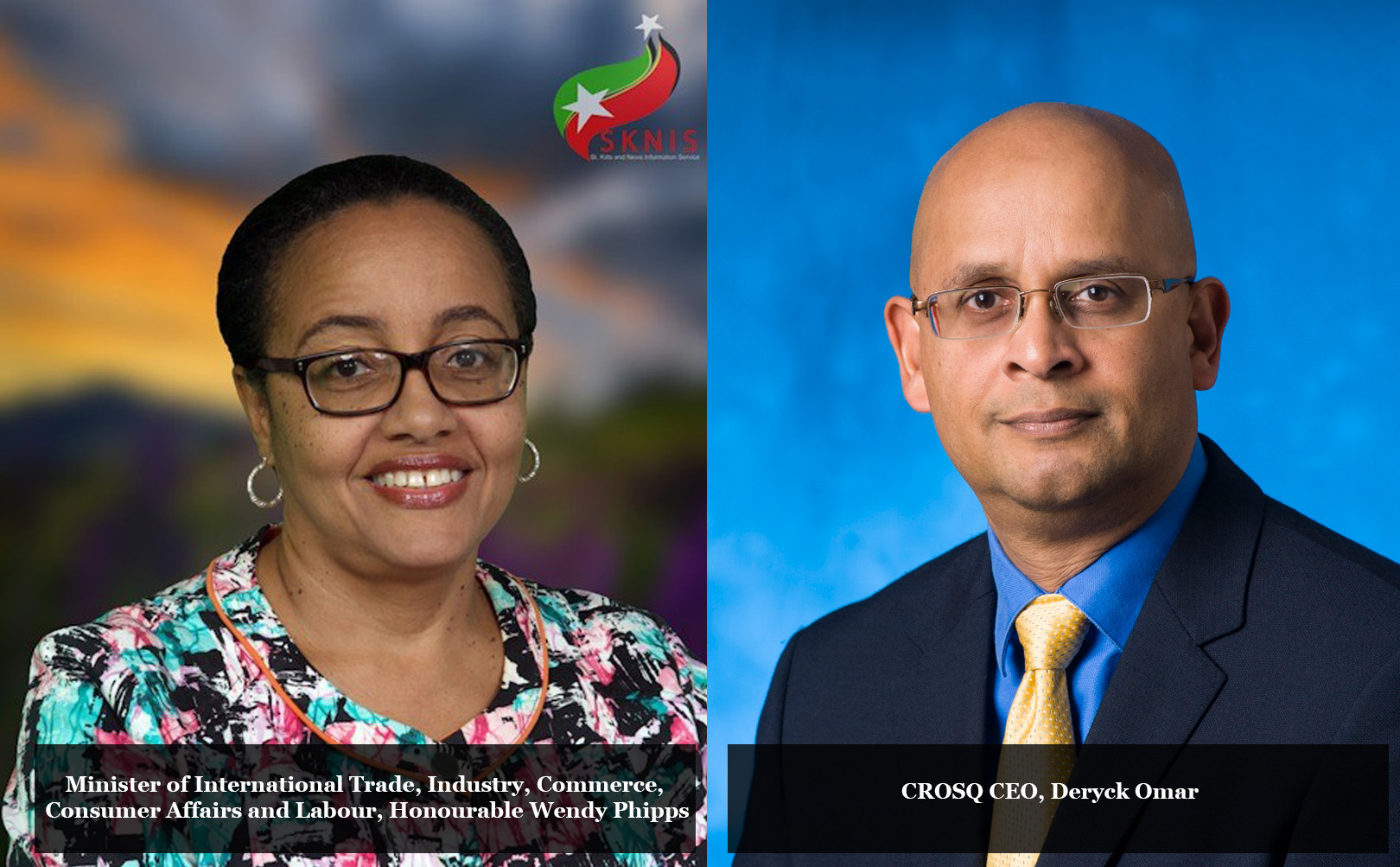
Basseterre, St. Kitts, June 30, 2021 (SKNBS): The development of a National Quality Policy (NQP) in the twin-island federation of St. Kitts and Nevis will go a long way toward building capacity in a number of critical priority areas government has identified. This announcement came from Minister of International Trade, Industry, Commerce, Consumer Affairs and Labour, Honourable Wendy Phipps, as the St. Kitts and Nevis Bureau of Standards (SKNBS), the Caribbean Development Bank (CDB), the CARICOM Regional Organization for Standards and Quality (CROSQ), and consultants commenced policy development at an online event on Tuesday, June 29, 2021.
A Quality Policy is the legal instrument used by governments in promoting and sustaining economic development, as well as environmental and social well-being. It is used to sustain an effective quality infrastructure, which relies on metrology, standardization, accreditation, conformity assessment (inspection and testing among other services) and market surveillance.
“I am confident that we are on the right path to … a comprehensive strategy that will allow us to build the type of quality infrastructure in St. Kitts and Nevis that will benefit not just consumers in terms of the integrity in the goods and services they purchase …but also from the standpoint of our manufacturers and our suppliers who we will have to … come up … to world class standards with the aid of the support infrastructure that the Bureau will be able to provide,” Minister Phipps said.
The national standards body – the SKNBS is the local Project Secretariat for all national activities. The objective is to formulate a National Quality Policy (NQP) for St. Kitts and Nevis, which will guide the establishment of National Quality Infrastructure (NQI) and technical regulations regime, support the competitiveness and enhance consumer protection.
Speaking at the virtual event, the Minister added that St. Kitts and Nevis is advancing diversification and economic development with the establishment of an NQI and that the manufacturing sector is well positioned to develop and implement quality systems.
CROSQ CEO, Deryck Omar, stated that the NQP will address the identified weaknesses, take advantage of opportunities and result in enhanced regional and extra-regional trade and business competitiveness. Citing the unique national and regional challenges he added, “The NQP for St. Kitts and Nevis is … expected … to contribute to the production of additional goods and services meeting international standards in a demonstrable way … increasing trade with higher levels of productivity, innovation, competitiveness and consumer health and environmental protection …”
CDB’s Coordinator of Regional Cooperation and Integration, Andrea Power noted that tourism-based economies in particular had been hard hit by the COVID-19 pandemic and forced to pivot to alternative sources of revenue to survive. She posited that NQP development for the region could help with needed innovation.
“Innovation is really linked to economic growth, and innovation is also the bedrock of competitiveness; and we cannot begin to talk about innovation unless we set the framework for quality and quality infrastructure… the National Quality Policy is but the first step” she concluded.
The NQP development is expected to last for just under a year, involving interviews, workshops, national quality infrastructure assessments and other engagements with public and private sector, as well as civil society interests. NQP formulation in St Kitts and Nevis is part of a larger multi country regional project being implemented by CROSQ, supervised by CDB’s EPA and CSME Standby Facility and funded by the European Union. The activities seek to deepen regional integration, enhance trade and business competitiveness by providing targeting assistance to national organisations.
-END-
